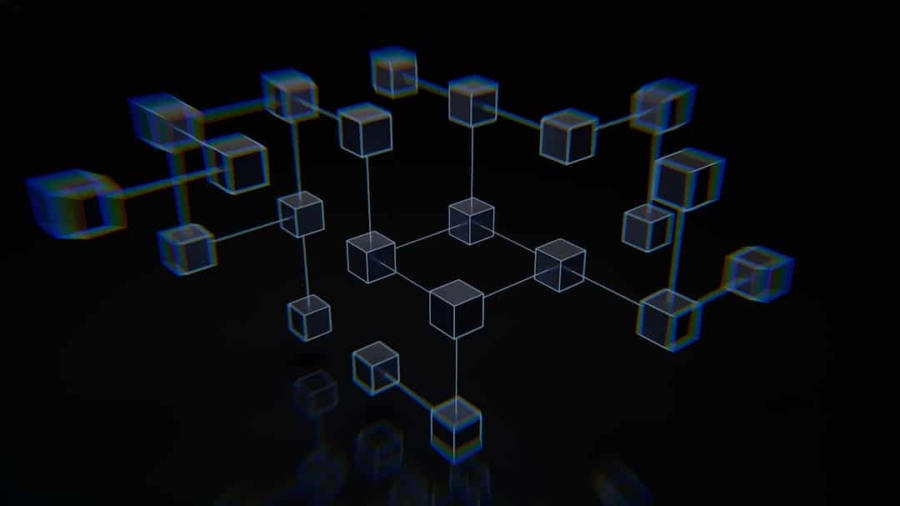Blockchain technology, often heralded as a revolutionary advancement, is fundamentally a decentralized digital ledger that records transactions across multiple computers in such a way that the registered transactions cannot be altered retroactively. This technology was initially developed to support Bitcoin, the first cryptocurrency, but its potential applications extend far beyond digital currencies. The core attributes of blockchain—transparency, immutability, and security—make it an attractive solution for various industries, including finance, supply chain management, and healthcare.
By enabling secure and transparent data sharing, blockchain has the potential to transform how information is managed and exchanged across sectors. In the context of healthcare, the implications of blockchain are particularly profound. The healthcare industry is characterized by complex data ecosystems involving numerous stakeholders, including patients, providers, insurers, and regulatory bodies.
Each of these entities generates and relies on vast amounts of data, often leading to silos that hinder effective communication and collaboration. Blockchain technology offers a way to break down these silos by providing a unified platform for data sharing that is both secure and accessible. As healthcare continues to evolve in the digital age, understanding the role of blockchain becomes increasingly critical for addressing existing challenges and improving patient outcomes.
Key Takeaways
- Blockchain technology is a decentralized and secure way of storing and managing data, making it ideal for industries like healthcare.
- The healthcare industry faces challenges such as data security, interoperability, and patient privacy, which can be addressed by blockchain technology.
- Blockchain revolutionizes healthcare data management by providing a tamper-proof and transparent system for storing and sharing patient information.
- The adoption of blockchain in healthcare improves security and privacy by giving patients more control over their data and enabling secure sharing between healthcare providers.
- Smart contracts play a key role in streamlining healthcare operations by automating processes such as insurance claims and supply chain management.
Current Challenges in the Healthcare Industry
The healthcare industry faces a myriad of challenges that impede its ability to deliver efficient and effective care. One of the most pressing issues is the fragmentation of patient data across various systems and platforms. Electronic Health Records (EHRs) are often siloed within individual healthcare organizations, making it difficult for providers to access comprehensive patient histories.
This lack of interoperability can lead to misdiagnoses, redundant testing, and ultimately poorer patient outcomes. Furthermore, patients frequently encounter barriers when trying to access their own health information, which can hinder their ability to make informed decisions about their care. Another significant challenge is the issue of data security and privacy.
Healthcare data breaches have become alarmingly common, with sensitive patient information being targeted by cybercriminals. According to the U.S. Department of Health and Human Services, there were over 600 reported breaches affecting more than 40 million individuals in 2020 alone.
These breaches not only compromise patient privacy but also erode trust in healthcare systems. Additionally, regulatory compliance adds another layer of complexity; organizations must navigate a labyrinth of laws and regulations designed to protect patient information while still striving to innovate and improve care delivery.
How Blockchain is Revolutionizing Healthcare Data Management

Blockchain technology has the potential to revolutionize healthcare data management by providing a secure and interoperable framework for sharing information.
This means that when a patient visits a new provider or facility, their complete medical history can be readily available, reducing the risk of errors and improving continuity of care.
For instance, if a patient with a chronic condition switches doctors, their new provider can quickly access their treatment history, medications, and allergies without the delays associated with traditional data transfer methods. Moreover, blockchain’s inherent immutability ensures that once data is recorded on the ledger, it cannot be altered or deleted without consensus from all parties involved. This feature not only enhances data integrity but also provides an auditable trail of all transactions related to patient care.
In practice, this could mean that any changes made to a patient’s record—such as updates to medication or treatment plans—are transparently logged, allowing for better accountability among healthcare providers. As a result, blockchain can facilitate more informed decision-making and foster collaboration among different stakeholders in the healthcare ecosystem.
The Impact of Blockchain on Healthcare Security and Privacy
The security and privacy of patient data are paramount concerns in the healthcare industry, and blockchain technology offers innovative solutions to address these issues. One of the key advantages of blockchain is its decentralized nature; unlike traditional databases that are vulnerable to single points of failure or attack, blockchain distributes data across a network of nodes. This means that even if one node is compromised, the integrity of the overall system remains intact.
Consequently, blockchain can significantly reduce the risk of data breaches and unauthorized access to sensitive health information. In addition to enhancing security through decentralization, blockchain also empowers patients with greater control over their own data. With traditional systems, patients often have limited visibility into who accesses their information and how it is used.
Blockchain can enable patients to grant or revoke access permissions to their health records at will, ensuring that they remain informed about who has access to their data. This level of transparency not only fosters trust between patients and providers but also aligns with regulatory requirements such as the Health Insurance Portability and Accountability Act (HIPAA) in the United States.
The Role of Smart Contracts in Streamlining Healthcare Operations
Smart contracts are self-executing contracts with the terms of the agreement directly written into code on the blockchain. In healthcare, smart contracts can streamline operations by automating processes that traditionally require manual intervention. For example, billing and claims processing can be significantly expedited through smart contracts that automatically verify eligibility and process payments based on predefined criteria.
This automation reduces administrative burdens on healthcare providers and minimizes errors associated with manual claims submissions. Additionally, smart contracts can facilitate more efficient coordination among multiple stakeholders in patient care. For instance, when a patient undergoes a procedure that involves multiple specialists, smart contracts can ensure that all parties are notified when certain conditions are met—such as when a procedure is completed or when follow-up care is required.
This level of automation not only enhances operational efficiency but also improves communication among providers, ultimately leading to better patient outcomes.
Blockchain’s Potential to Improve Drug Traceability and Supply Chain Management

The pharmaceutical supply chain is notoriously complex and fraught with challenges related to drug traceability and counterfeit medications. Blockchain technology offers a robust solution for enhancing transparency and accountability throughout the supply chain. By recording every transaction related to a drug—from manufacturing to distribution to dispensing—on an immutable ledger, stakeholders can track the movement of medications in real-time.
This capability is particularly crucial in combating counterfeit drugs, which pose significant risks to patient safety. For example, if a batch of medication is found to be contaminated or counterfeit, blockchain can provide an auditable trail that allows manufacturers and regulators to quickly identify affected products and remove them from circulation. This rapid response capability not only protects patients but also helps maintain the integrity of the pharmaceutical supply chain as a whole.
Furthermore, by improving traceability, blockchain can enhance compliance with regulatory requirements such as the Drug Supply Chain Security Act (DSCSA) in the United States.
The Rise of Blockchain-based Healthcare Platforms and Applications
As awareness of blockchain’s potential in healthcare grows, numerous platforms and applications are emerging that leverage this technology to address industry challenges. For instance, companies like MedRec are developing blockchain-based systems for managing electronic health records that prioritize patient control over their own data while ensuring interoperability among different providers. Similarly, projects like Chronicled focus on improving supply chain transparency for pharmaceuticals through blockchain solutions that track drug provenance.
These platforms not only demonstrate the versatility of blockchain technology but also highlight its capacity to foster innovation within the healthcare sector. By creating ecosystems where data can be securely shared among various stakeholders—patients, providers, insurers, and researchers—these applications pave the way for more collaborative approaches to healthcare delivery. As more organizations adopt blockchain solutions, we can expect an increase in efficiency, reduced costs, and improved patient outcomes across the board.
Future Implications and Challenges of Blockchain Adoption in Healthcare
While the potential benefits of blockchain adoption in healthcare are significant, several challenges must be addressed before widespread implementation can occur. One major hurdle is regulatory uncertainty; as blockchain technology evolves rapidly, existing regulations may not adequately address its unique characteristics. Policymakers will need to develop frameworks that balance innovation with patient protection while ensuring compliance with existing laws.
Another challenge lies in achieving interoperability among different blockchain systems. For blockchain to realize its full potential in healthcare data management, various platforms must be able to communicate seamlessly with one another. This requires standardization efforts across the industry to ensure compatibility while maintaining security protocols.
Moreover, there is a need for education and training among healthcare professionals regarding blockchain technology. Many stakeholders may be unfamiliar with how blockchain works or its potential applications within their specific contexts. As such, initiatives aimed at increasing awareness and understanding will be crucial for fostering adoption.
In conclusion, while there are obstacles to overcome in implementing blockchain technology within healthcare systems, its transformative potential cannot be overlooked. By addressing current challenges related to data management, security, privacy, supply chain integrity, and operational efficiency through innovative solutions like smart contracts and decentralized platforms, blockchain stands poised to reshape the future landscape of healthcare delivery for the betterment of patients worldwide.
In the rapidly evolving landscape of healthcare, blockchain technology is making significant strides by enhancing data security, improving interoperability, and streamlining processes. As the healthcare industry continues to embrace digital transformation, it’s crucial to consider the tools that facilitate these advancements. For instance, effective project management software plays a vital role in implementing blockchain solutions within healthcare settings. To explore the best options available, you can refer to an insightful article on the best software for project management. This resource provides valuable information on selecting the right tools to manage complex projects, ensuring successful integration of blockchain technology in healthcare systems.
FAQs
What is blockchain technology?
Blockchain is a decentralized, distributed ledger technology that records transactions across many computers in such a way that the registered transactions cannot be altered retroactively.
How is blockchain disrupting the healthcare industry?
Blockchain is disrupting the healthcare industry by providing a secure and transparent way to store and share patient data, streamline administrative processes, and improve the integrity of clinical trials and research.
What are the benefits of using blockchain in healthcare?
Some benefits of using blockchain in healthcare include improved data security, reduced administrative costs, enhanced interoperability, and increased trust and transparency in healthcare transactions.
What are some use cases of blockchain in healthcare?
Some use cases of blockchain in healthcare include managing electronic health records, tracking the supply chain of pharmaceuticals, enabling secure and transparent billing and claims processing, and facilitating clinical research and trials.
What are the challenges of implementing blockchain in healthcare?
Challenges of implementing blockchain in healthcare include regulatory and compliance issues, interoperability with existing systems, scalability, and the need for industry-wide collaboration and standardization.
Is blockchain technology widely adopted in the healthcare industry?
While the adoption of blockchain technology in healthcare is still in its early stages, there is growing interest and investment in exploring its potential applications and benefits in the industry.

